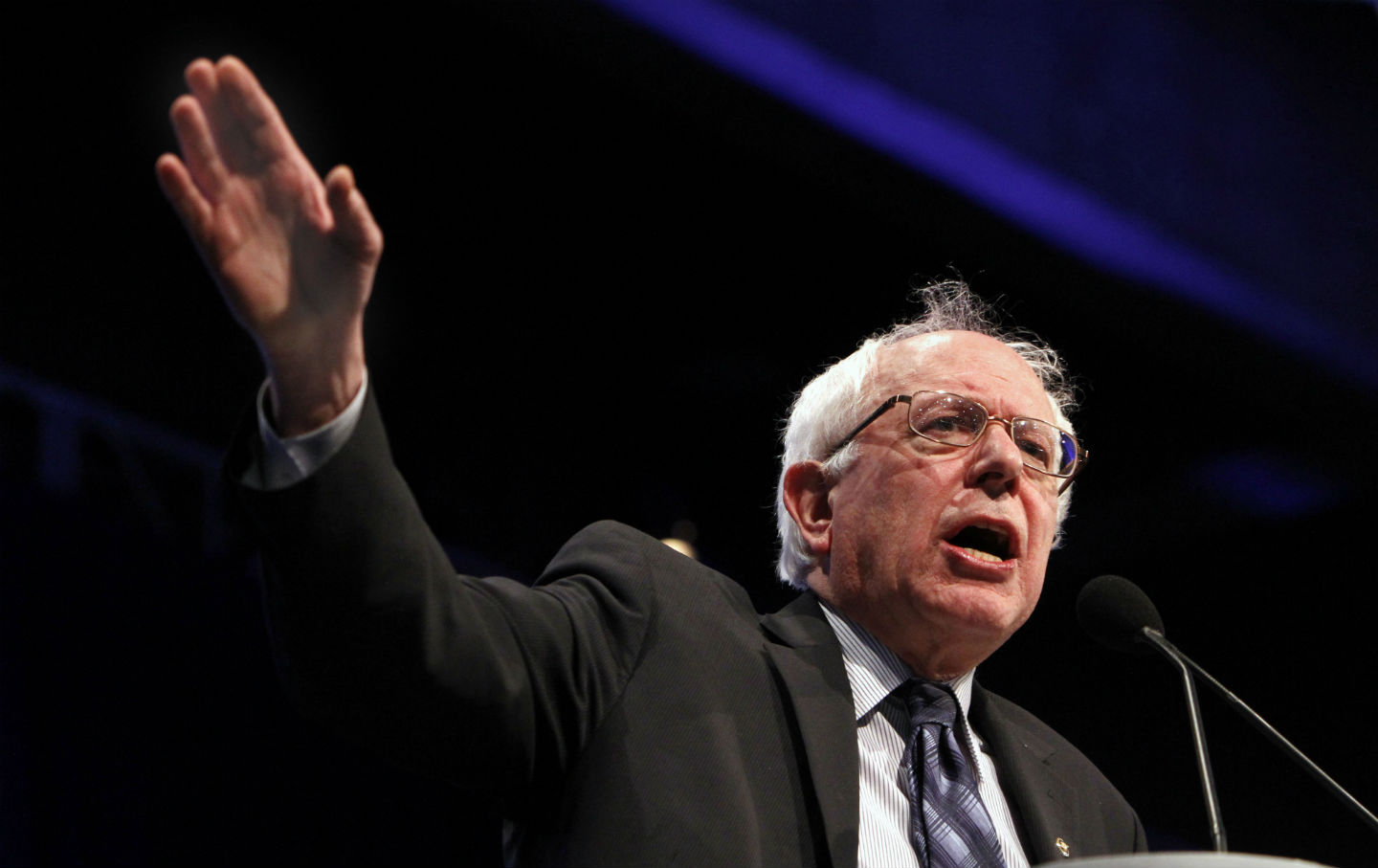
Bernie Sanders’s success in the Democratic campaign has put the spotlight on an ideology that was previously marginalized in this country.
The essence of the Cold War was a struggle between the freedom that a participatory democracy provides — represented by the United States — versus a controlling and restricted state based on the Soviet Union: capitalism versus communism, liberalism versus socialism.
The fall of most communist regimes following the collapse of the Soviet Union cast serious doubts on the validity of state-directed systems. The United States prevailed. Why then, in the “Mecca of Capitalism” has a veteran politician, flying the flag for socialism, become one of the major candidates in the electoral campaign?
Bernie Sanders’s emergence in the Democratic Party primaries has already ceased to be a surprise. In the last debate, he stood out as Hillary Clinton’s only rival. She even had to change her suggestions faced with the unusual support for this veteran senator from Vermont.
His speech, which focused on economic inequality, increasing taxes for the wealthiest, increasing the minimum wage, and regulating the financial system, has put some of the more conservative figures — who must yearn for Joseph McCarthy’s anti-communist crusade — on edge.
Nevertheless, support for Sanders, who describes himself as a Democratic Socialist, does not necessarily mean the emergence of a socialist wave in the United States, but it does show that now, there is an electoral niche that accepts this ideology.
An Individualistic Country
Sanders’s presence leads us to the following question: Why has socialism never boomed in the United States? German economist Werner Sombart tried to resolve this question in 1906 with a book, which is still a reference for sociologists throughout the world. In “Why is There No Socialism in the United States,” he explains that the absence of hierarchical and monarchic structures, as compared with Europe, means that individualism has become the fundamental principle of American society. In an environment where private property is the most important thing, class struggle is just a myth.
Although the country has the characteristics required to develop socialist movements — a significant working class at the end of the 19th century, which was the root of industrialization and European immigration — the North American preference for the individual, private property and religious Puritanism prevailed.
“The United States is a country that is capitalist, individualistic, and a great lover of private property. Socialism is identified with Europe, with other countries, atheism, and a disruption of the economic order. The American dream is to own your own home, not for everybody else to have a home,” Norberto Barreto, specialist in U.S. history and professor at the University of the Pacific, Peru, told El Comercio.
At the start of the 20th century, socialist movements appeared that even put together an organized party to stand for the 1912 elections. With Eugene Debs as its candidate, the Socialist Party received 1 million votes, almost 6 percent of the electorate. However, during World War I, Debs was put in jail: The Democratic and Republican parties made sure they wouldn’t have any further competition. The crash of 1929 and World War II changed the political and social landscape: Labor movements were repressed, as well as all attempts to organize anything related to leftist ideology. Socialists became confused with communists, and in the 1950s, suspects were persecuted and put in jail, accused of being spies and selling information to the Soviet Union.
“In the 1950s, the United States banned socialism from polite discourse. That meant we have now about two generations worth of people who never really engaged that topic. It produces both an inability to understand socialism [and] a gut level rejection and hostility to it,” Richard Wolff, professor at the University of Massachusetts and a Socialist campaigner, commented.
Since this decade, the best way to insult a politician has been to call him or her a socialist. And this has been the main adjective applied to Barack Obama, by the more extreme Republicans, since his 2008 campaign.
The Comeback
“The strength of the middle classes has meant that Socialism has never seemed attractive. When this middle class goes into crisis, then the system goes into a crisis,” explains Barreto. Consequently, the comeback of socialist ideas in the United States has gained a renewed energy following the 2008 economic crisis and the emergence of citizen movements such as Occupy Wall Street in 2011, which brought together the public’s discontent about economic inequality, unemployment, and the control of corporations over the country.
Bernie Sanders is the one candidate who has gathered together this frustration, knowing which buttons to press for certain sectors of U.S. society, above all young people who never experienced the Cold War and retired people who have been affected by the recent financial crisis.
“What democratic socialism means to me is having a government which represents all people, rather than just the wealthiest people, which is most often the case right now in this country,” repeated Sanders in one of his mass speeches.
A recent study carried out by Gallup shows that 50 percent of U.S. voters wouldn’t vote for a socialist candidate. But 47 percent say they would. Perhaps Bernie Sanders won’t win a Democratic nomination against the immense machine that is Hillary Clinton’s campaign, but the veteran senator from Vermont has already made sure that the word “socialist” will no longer be used as an insult.

Leave a Reply
You must be logged in to post a comment.